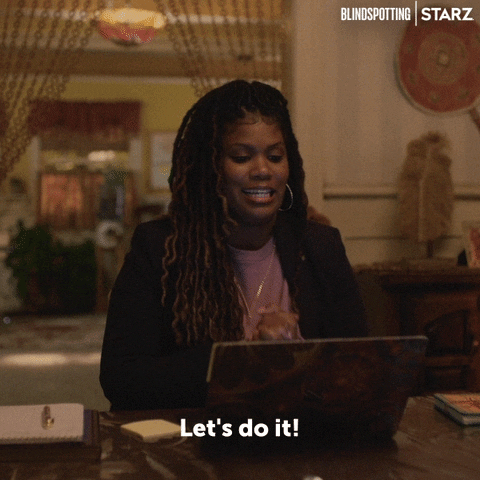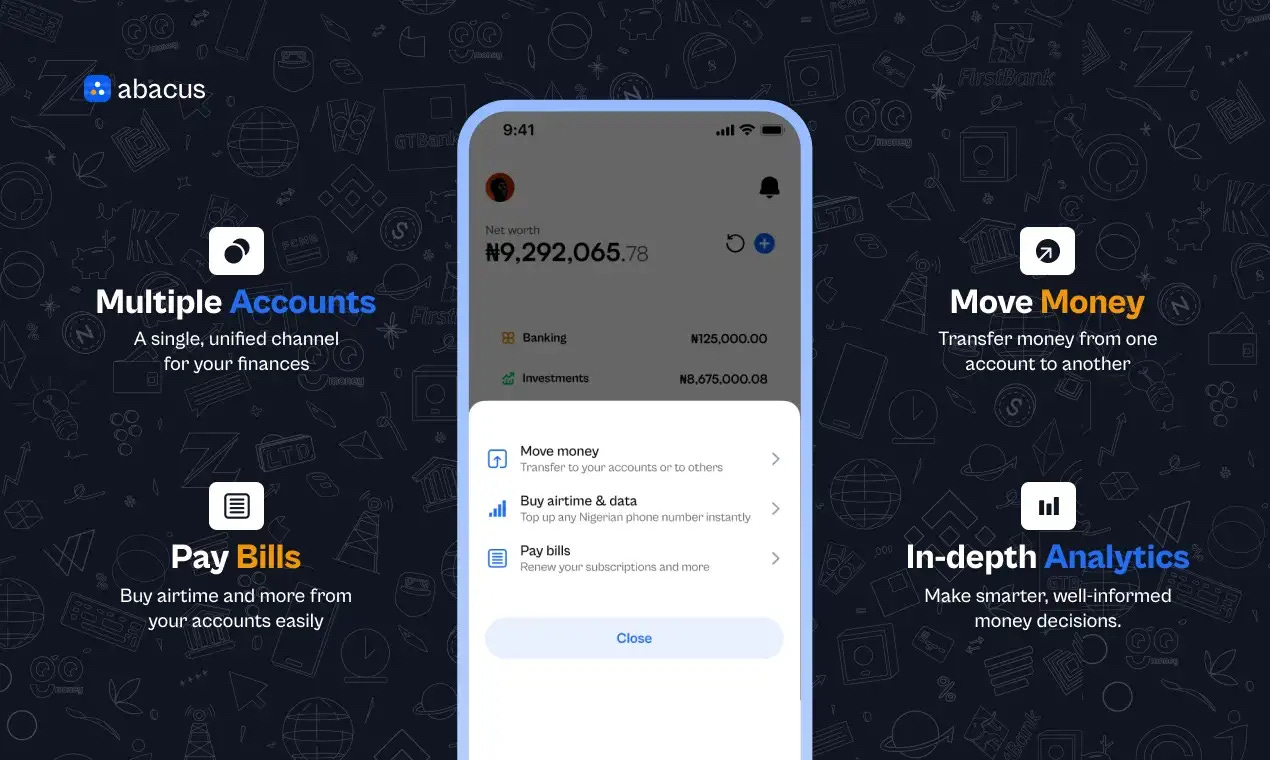#14: Romanticizing Creativity and Spotlighting Abacus.
...is creativity for everyone? 🤔
Welcome to the 21 subscribers who have joined us since our last issue!
Welcome to the #viziblefam. We’re so excited to have you 🫶🏾
Is creativity for everyone?
I never considered myself creative in any way. It felt so out of reach. I couldn’t relate to creativity in the traditional sense of singing, writing, drawing or acting. So I just thought I wasn’t creative, but I wasn’t content with that. Popular culture made me feel like success was unattainable without creativity, so I did everything I could to learn creativity.
I searched a myriad of books, articles and TED talks, all to no avail. They seemed to give the same crazy tips like doodling daily, going on walks, and trying to find your inner child. It was a little absurd. I can’t draw to save my life. And what does “find your inner child” even mean? I spent about six years trying to figure this out and learnt nothing substantial about creativity.
It wasn’t until I learnt about the fake letter on Mozart’s creative process that it started making sense to me. In his book “How to Fly a Horse”, Kevin Ashton talked about the discrepancy between this letter allegedly written by Mozart and other letters Mozart wrote. The mysterious letter only came to light years after he died, and there was no proof he wrote it.
The fake letter perpetuated the false notion that creativity is only for special people. Unfortunately, the ideologies from this letter have formed the basis of our culture’s view on creativity. Thousands of articles, papers and books have been written, all aiming to explain the phenomenon of creativity. Interestingly, people’s many attempts to explain creativity have further mystified it.
So here we are, in 2022, and people still believe these things. People still believe that creativity is not for everyone. People still think that some humans are born creative. And people still believe there is no template for understanding creativity; it just happens like magic. Well, I strongly disagree. Creativity is not exclusive. Everyone creates, and everyone can be creative.
I believe creativity is at different levels and manifests itself in different ways. The same goes for intelligence. I don’t believe that anyone is stupid. Intelligence, like creativity, is just at different levels and has various expressions. I’ve seen the proof of this numerous times. Social stratification has led people to believe that some humans are better than others. This belief is the foundation of many of our “modern” practices.
These days, we stratify people based on any difference we can find: wealth [rich, middle class, and poor], race [black, white, asian, etc.], intelligence [geniuses, average intelligence and unintelligent], and the list goes on and on. The truth is; stratification is useless and pointless. Stratification is a social construct that has done more damage than good to our society.
Here’s the truth about creativity:
As long as you have a brain, you can be creative; all you need to do is find your expression.
Creativity is a skill. And while your lived experiences and environment contribute to your creativity level, creativity can still be learnt. A popular misconception about creativity that needs to rest is that only people who are performers (musicians, dancers, actors) or artists or writers or designers are creatives. That’s not true. You just need to find your expression.
If only a select few can be creative, what is the fate of product managers, user researchers, and engineers? Are we then doomed to a dull life? I don’t believe so. I believe we can find avenues for creativity in our work. I would even argue that we already have our expression in our work. We aren’t just aware of it. We’re unaware of most of our creative expressions because we believe creative efforts must be extremely profound.
The paradox of creativity is that it is both complex and simple. Creativity is complex primarily because it requires perseverance and continuous iteration, which aren’t easy. But creativity is also simple because all it requires from you is to create. It doesn’t have to be a masterpiece—it just has to be something you conceived and implemented.
I still have many things to say on this topic, but I will close this article out with this excerpt from Kevin Ashton’s How to Fly a Horse:
“Creation is a destination, the consequence of acts that appear inconsequential by themselves but that, when accumulated, change the world. Creating is an ordinary act, creation its extraordinary outcome. Work is the soul of creation.
Work is getting up early and going home late, turning down dates and giving up weekends, writing and rewriting, reviewing and revising, rote and routine, staring down the doubt of the blank page, beginning when we do not know where to start, and not stopping when we cannot go on. It is not fun, romantic, or, most of the time, even interesting.
If we want to create, we must, in the words of Paul Gallico, open our veins and bleed. There are no secrets. When we ask writers about their process or scientists about their methods or inventors where they get their ideas from, we are hoping for something that doesn’t exist: a trick, recipe, or ritual to summon the magic — an alternative to work. There isn’t one. To create is to work. It is that easy and that hard. With the myth gone, we have a choice. If we can create without genius or epiphany, then the only thing stopping us from creating is us.”
Product Spotlight
I’m really excited about this week’s product feature. It’s a fintech app but one that is actually valuable, trust me. This is the first time I’m featuring a fintech product in this newsletter, so you know it was too good to pass on. Let’s get to it.
Profile
Name: Abacus
Website: https://www.trustabacus.com/
Countries Served: Nigeria
Product Space: Fintech
Price: Free
Product Released: 2022
In their own words:
Abacus is mission control for your money.
Abacus helps you better track, manage and spend your money by unifying your banking, investment and crypto accounts into a single, secure app.
Abacus enables you to be better informed about your money so you can better control your finances. The app helps you track and manage all your money and financial accounts in one unified place.
By combining your financial accounts on Abacus, you will be able to more easily move your money from one account to another, pay your bills, and see all your transactions, expenses, etc., collectively for better tracking and analysis. You will also get helpful insights like total spending, inflow, earnings, fees, etc., so you can have a bird’s-eye view of your financial activities.
Vibe Check:
I like the product. I use a similar app, and its features are not as robust as Abacus’, which is very impressive. I think this app is useful for many reasons, one being that you can get your net worth at a glance. This can be extremely valuable when you’re contemplating making a purchase you cannot afford 😂
Getting analytics on your spending habits can also be useful for people who care about budgeting or are aiming to be more frugal. Traditional banking apps provide minimal support on this, so I love that Abacus saw the opportunity and is going for it. One can never have too much visibility into their finance.
I think it’s also great because it’ll reduce how often you interface with your Nigerian bank apps. Anyone who has used any of those apps knows how painful it is. Imagine a world free of the poorly designed interface, horrible user experience and bugginess of a typical Nigerian bank app.
I also liked that I didn’t have to give them confidential information to realise value. Abacus’ app has this nice dev environment where you can play with the core features without giving them your bank ID or account details. I’m always biased towards experiences designed like this.
I’ve lost count of the number of times I’ve downloaded an app, thinking it would be useful to me, and given them all my information, only to find out that the app sucks. I think designing the new user experience with this mindset helps reduce the time-to-value for customers.
The truth is that with early-stage products like this, many people try them out of curiosity. Showing people value with the least effort is the easiest way to get them to their aha moment.
One thing I might experiment with if I was a designer at Abacus would be making this demo environment available to people who download the app before they have to create an account. I would even argue that the demo environment should also be on the website so that people can try it out.
I think that might even reduce the time to value for customers. One disadvantage might be that it reduces the number of people that sign up for the app. But that might be a good thing because at least you’ll know that most of the people signing up must have reached their aha moment, which means they’ll be high-quality users. And that is the type of user you need the most in your earliest stages.
What do you think about Abacus?
On an unrelated note:
#DumssThePlug: Pendo, in collaboration with MindTheProduct, created this course on Product Led Growth, which is very insightful. I’m just wrapping it up myself. The course is free for a limited time, so check it out.
Here are three of my favourite reads this week:
Hard Reset or How Not to Drive Your Company Off A Cliff by Sarah Guo
Can you have more than one professional identity? by Ellen Donnelly
Bowing out:
That’s it for this week, folks! I hope you found it interesting.
Don’t forget to subscribe to the newsletter and share it with your people.
You know how it goes. If you have feedback on how we can make the newsletter more useful to you, you can send them to us here.
I hope the rest of your week goes great! See you in the next issue!
Yours in Product Discovery,
Dumss.






Agreed! I've been reading through your newsletter and it's so valuable. Thank you for providing valuable content!